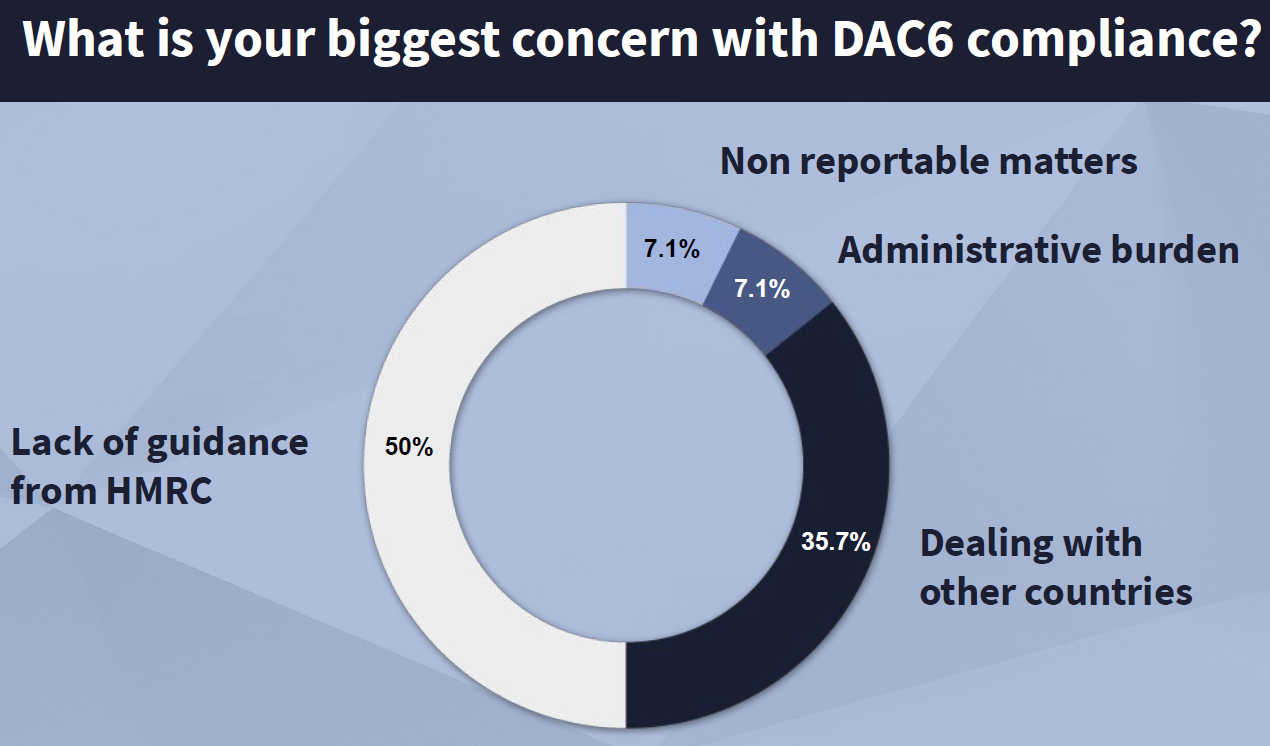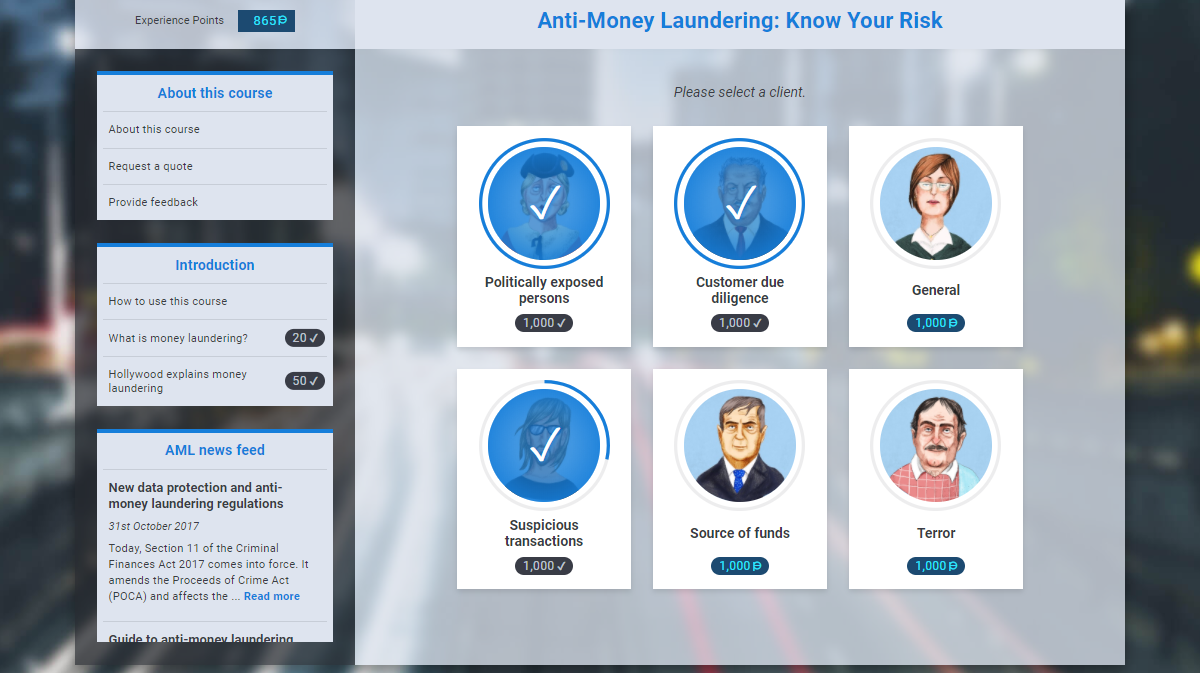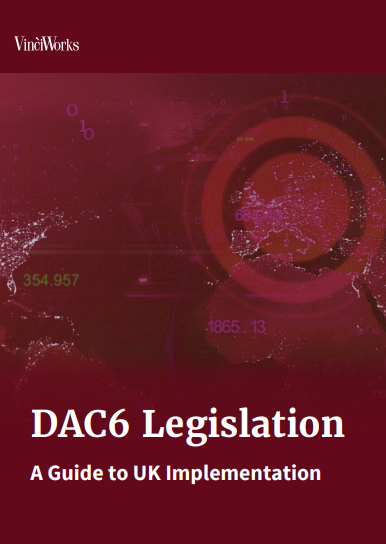Register for our DAC6 email updates

On Wednesday 29 January, over 50 leading international firms joined us for our third DAC6 core group meeting. During the meeting, our panel, which included HMRC’s Policy Lead for DAC6, took questions from our 100-strong audience to try to make sense of the Directive and fill in some missing details. Here is a summary of the discussions with HMRC:
Brexit
Brexit will not have any immediate effect on the UK’s implementation of DAC6. The Directive will continue to apply in full at least for the duration of the transition period or until a deal is reached.
DAC6 reporting obligations
All intermediaries have a reporting obligation. The primary interest of HMRC is to receive the correct information about transactions so that they can assess whether a transaction needs further review. While the Directive mandates reporting deadlines, reports should include as much relevant information as possible.
Partnerships
In partnerships, everyone is considered to be an intermediary, both the limited liability partnership and the partners themselves. In practice, either the partnership or the assigned partner should be reporting.
Reporting updated information
HMRC will provide a facility to update arrangements that have been previously reported. This can be used to make corrections if an incorrect report was made, or for example, where additional taxpayers are added to a marketable arrangement. It seems that HMRC does not have an expectation that update reports will be made whenever new information comes to light.
Reporting triggers
HMRC understands that further clarification is required in regards to when exactly an arrangement becomes reportable; they are not looking for reporting to be made especially early, particularly where this compromises the quality of the information provided.
Legal Professional Privilege
HMRC understands they may have missed the mark on this and will need to provide more guidance on this topic. HMRC will be speaking with relevant stakeholders in order to find a solution that works for everyone and complies with the legal profession’s LPP requirements.
Penalties
HMRC will be lenient where there is a reasonable excuse for not reporting. They will penalise those who deliberately avoid reporting, particularly on multiple occasions. Willful ignorance or burying heads in the sand will not be tolerated. The late release of the guidance will be taken into consideration when penalising for the initial reporting period.
Reasonable procedures
HMRC does expect firms to have “reasonable procedures” in place to ensure they are compliant with DAC6. They stressed that “reasonable procedures” will be interpreted differently depending on whether a firm will be reporting 12 transactions or 12,000 transactions. HMRC will expect there to be “reasonable procedures” in place based on the circumstances.
Determining lead intermediaries
HMRC will not dictate what conversations need to be carried out between intermediaries. However, the more communication between intermediaries the better, as this will minimise duplicate reports. In deciding which intermediary should report, you should rely on the person with the greatest proximity to the information.
Multiple jurisdictions
Many issues come up when dealing with foreign offices, especially when determining which office provided the service to the relevant taxpayer. HMRC are speaking with other jurisdictions to determine the best way to deal with this.
Anonymous DAC6 reporting
HMRC will not allow anonymous reporting in cases when the transaction might not go ahead.
DAC6 reporting hierarchy
HMRC will always prefer over-reporting to under-reporting and stressed that this is fundamentally an information-gathering exercise.
Highlights from our survey of leading international firms

Prior to the meeting, we sent a survey to our attendees regarding their concerns relating to DAC6. Here is a summary of the key results:
- 50% cited the lack of guidance from HMRC as their biggest concern with DAC6 compliance, while 25.7% cited dealing with other countries
- Regarding concerns related to DAC6 implementation, 45% cited historical records while 27.5% said transactions that change are their biggest concern with DAC6 implementation
- 92.5% of firms said they will be making fundamental changes to practice management such as changes to engagement letters
- 34.1% feel they are likely to over-report transactions while 46.3% are not sure how strict their approach will be
- 35% feel they require most guidance on legal privilege and 34.1% feel they would require more guidance on hallmarks
- 66.7% of respondents have said they will review matters for DAC6 reporting on a monthly basis
Conclusion
DAC6 requires fundamental changes to the way in which law firms and other intermediaries do business. It involves changes to client communication, IT implementation and significant administrative burden. Based on the principle that there is no competitive advantage in compliance, VinciWorks is continuing to consult with leading firms to help establish best-practice in DAC6 compliance. This includes a ready-to-go end-to-end DAC6 solution that includes both the training and reporting aspect of compliance.













